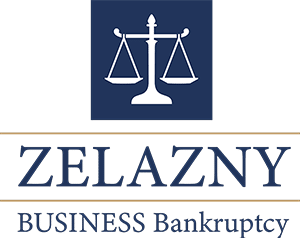Chapter 7 Bankruptcy Attorney
If you have high credit card debt, medical debt, and other unsecured debts and few financial assets, Chapter 7 bankruptcy may be your best solution. Chapter 7 is also commonly known as a “straight bankruptcy” and refers to the complete liquidation of qualified debts through the federal bankruptcy courts. Once your case is filed, all creditor collection activity must cease, and once the case is discharged, your qualified debts are wiped clean. If you believe filing for Chapter 7 bankruptcy may be right for you, contact our Chicago bankruptcy attorney.
A Chapter 7 bankruptcy is a major step that should not be taken lightly. Though you can get rid of many (if not all) of your debts, it can also have an adverse effect on your credit rating and remain on your record for up to 10 years. In addition, federal law only allows individuals to file this type of bankruptcy once every eight years. With so many factors and potential consequences, filing for Chapter 7 bankruptcy is strongly recommended only as a last resort and with the assistance of experienced legal counsel.
For more than two decades, bankruptcy attorney Eric Zelazny of Zelazny Business Bankruptcy in Chicago has been helping individuals facing overwhelming debt resolve these issues through Chapter 7 Bankruptcy Debt Liquidation, Chapter 13 Bankruptcy, or one of several other financial resolutions. Eric Zelazny is an experienced bankruptcy lawyer and CPA with a unique skill set that individuals and small businesses will call on frequently to help overcome even the most complicated debt problems. Eric meets each client personally for a free initial consultation and offers friendly, affordable, and highly qualified financial and legal guidance. Whatever your financial situation, Eric can advise you on the best way forward toward a successful resolution that can put you on the path to financial freedom.
What debts can be discharged through Chapter 7 bankruptcy?
Many unsecured debts can be completely eliminated with the filing of a Chapter 7 bankruptcy, including the following:
- Credit cards;
- Medical bills;
- Personal loans;
- Utility bills; and
- Court judgments.
Home foreclosures can also be halted as long as the bankruptcy is filed before the foreclosure sale date. However, a foreclosure can still occur eventually if you fail to keep up with your payments on the property. Debts that generally cannot be discharged through Chapter 7 bankruptcy include:
- Student loans;
- Child support;
- Alimony; and
- Income taxes.
Though you cannot wipe out most government debts, such as student loans and back taxes owed, you can stop collection activity on the part of government agencies and put yourself in a better position to work out a more favorable settlement.
What happens after my Chapter 7 Bankruptcy is discharged?
After your bankruptcy case is completed and your debts are discharged, you have a clean slate financially and can start all over. But a fresh start does not guarantee future financial success. You will need to consider life after bankruptcy issues, such as altering spending habits, living on a budget and credit restoration. Our bankruptcy attorneys are there to help with all these issues, providing skilled guidance and connecting you with helpful resources to put you on the right track.
Get Started
To schedule your free, no-obligation consultation with our friendly and experienced bankruptcy attorney, contact us today at 708-888-2299. Attorney Eric Zelazny will meet with you to answer all your questions, review your personal situation, and determine what issues you need to be concerned with in deciding whether or not to file for Chapter 7 bankruptcy.
